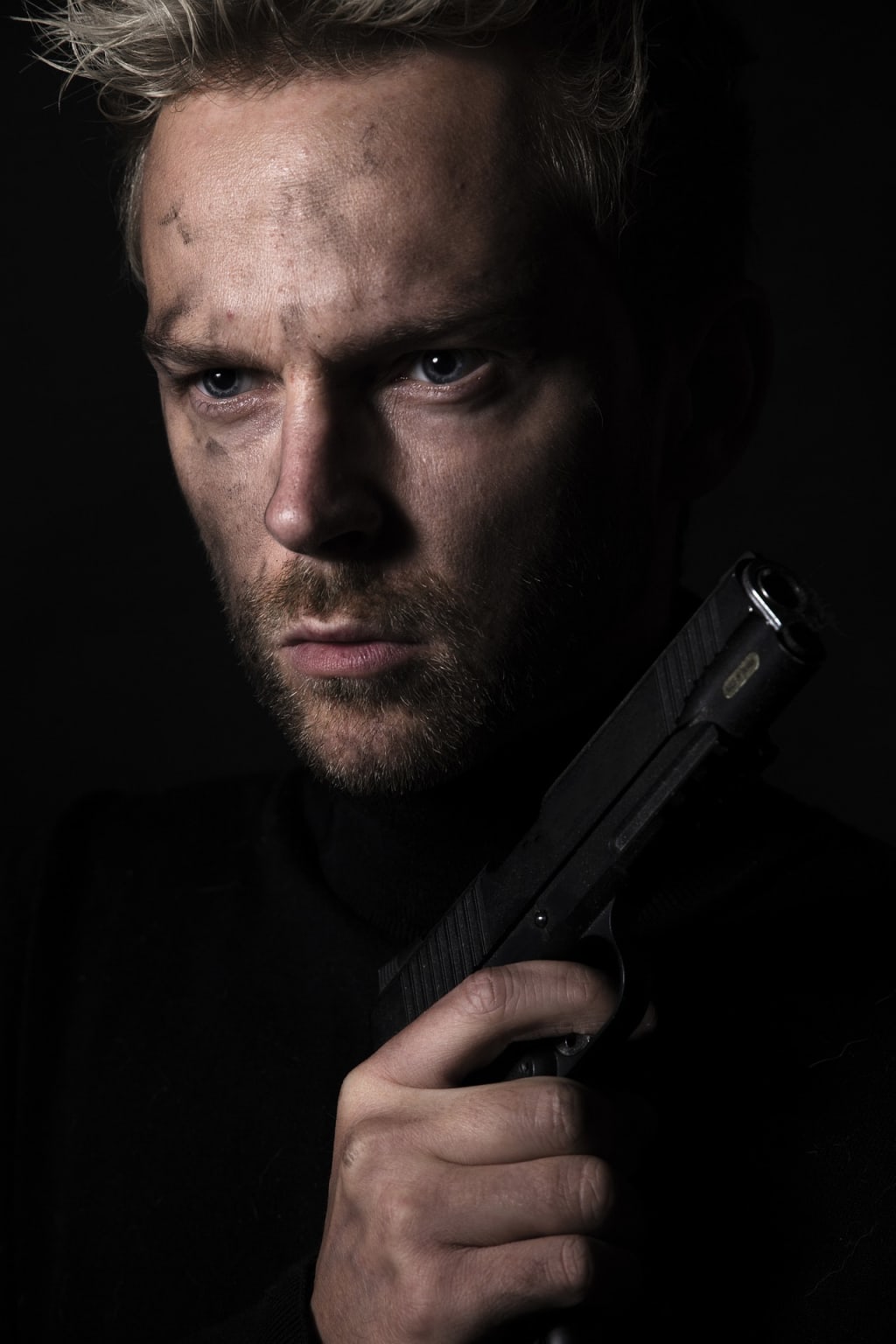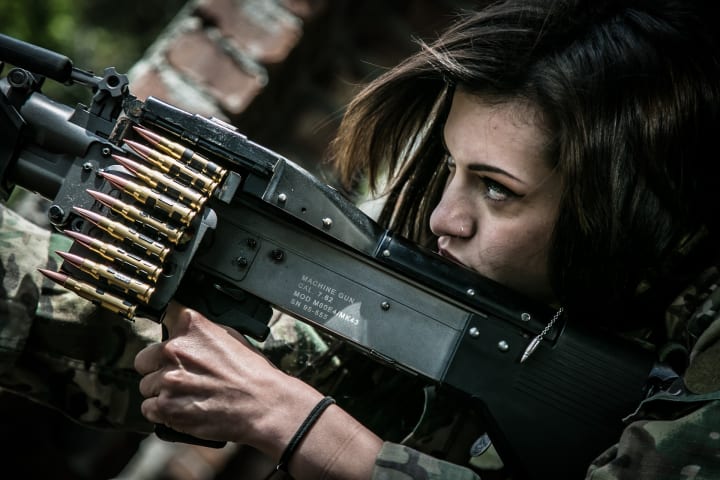Down and Dirty Combat in The Chronicles of Darkness
A Useful Storytelling Mechanism

Combat is a part of most RPGs, because sooner or later someone is going to try to solve problems through the application of extreme force. And while some games keep combat extremely bare bones, Chronicles of Darkness offers players a lot of dynamic options when it comes to their violent delights. There's melee combat with bare-handed options, grappling, and weapons, there's firearms (including mechanics for armor, cover, distance, etc.), thrown weapons, falling damage, environmental damage, supernatural powers, and of course vehicular combat (which I recently talked about in Vehicular Combat is Always an Option), and that's without getting into your expanded options from fighting style merits, or all the shiny options in books like Hurt Locker.
Sometimes, though, a fight isn't worth bringing out those big guns. Whether it's because the odds are tilted so staggeringly in your favor, or your enemies are truly so lowly as to not be worth rolling initiative and tracking the round-by-round penalties and bonuses, it's almost a foregone conclusion as to who is coming out on top.
And when you find yourself running into those scenarios, it's a good idea to use the Down and Dirty Combat rules found on page 88.
What is Down and Dirty Combat?

Normal combat in a Chronicles of Darkness game is something of a production. Everyone rolls in their initiative, declares their actions, rolls their attacks, deals and takes damage, activates powers, and so on. It can get your pulse spiking, and add a lot of adrenaline to a game session, but it can also eat up a lot of time.
Now, if you're throwing down with a rival werewolf pack, trying to fend off a coup for the Prince's throne, or trying to drive off one of the immortal True Fae to protect your home, you might want to devote that kind of time and energy to the encounter. After all, your players are likely evenly matched (if not overmatched), and these tend to be moments of high drama when the plot goes one way, or another.
The same can't be said of your players starting a brawl with a club's bouncers because they weren't on the guest list. Or dealing with low-level security guards who don't even have guns. While these kinds of encounters do happen, it can often feel like it isn't worth rolling out an initiative order, getting a field of combat set out and described, and spending half an hour or more to resolve something that, at best, will be a speed bump against your players.
These are the situations that Down and Dirty Combat is for.
In short, you declare what your intent is (knock out the guards, kill the mugger, escape from the beat cops, etc.), and then put together your dice pool. Let's say you wanted to get involved in a shootout with your vampire gunslinger, so you have your Dexterity + Firearms pool. Your enemy could attempt to escape with a Dexterity + Athletics pool, or match your attack pool to try to out fight you. Once all that is decided, you roll.
On a success you deal damage equal to the difference between your and your opponent's successes, as well as the equipment bonus of your weapon, in addition to achieving your goal stated goal. On a failure the opponent deals damage to you equal to that difference, and escapes, unless they choose to stay and press their luck to get the upper hand. On an exceptional success you also get a point of Willpower back, and on en Exceptional Failure you get all the negative effects, but you also get the opposite of your initial goal (if you wanted to escape, you might be stunned instead, for example). You can do these as individuals, if you're all taking different actions, or you can gang up and get a whole team to cooperate on a single action, as you need.
Advantages and Disadvantages
While stated above, it bears repeating; Down and Dirty Combat should be used for those "less important" combats where it's not really a question of who is going to win when the dust settles. The only real question is whether your players are going to walk away without a scratch, or they're going to be a little battered and bruised by the time they reach the important encounter.
It should also be noted that the decision of whether or not to use this mechanic should be asked for by the players, rather than dictated by the ST. If you, as the ST, feel that this encounter is too big or too uncertain, then you can always tell players no, that's not an option for this fight.
The advantage of this system is that it lets you keep the story flowing without breaking for less important brawls and shoot-outs, getting results quickly. This also lets you put in several, smaller combat encounters as part of a larger scene, allowing your players to deal with minions without spending a lot of out-of-game time. However, it can also reduce violence (which should generally be a pulse-pounding endeavor) to little more than a single die roll that fades into the background. Additionally, if players do find themselves on the wrong end of a few of these die rolls, they can quickly feel like they're betting too much on a single pool of dice.
As with everything else in the book. this rule is a single tool. An option you can use, or not use, as you see fit. But as a Storyteller who has often wished that I could resolve combats more quickly, this tool is definitely one I'd recommend trying out.
More World/Chronicles of Darkness Content
If you are interested in more articles and supplements from me for the World/Chronicles of Darkness, check out the following!
- 5 Tips For Running a Better World of Darkness Game
- 5 Tips For Running Better "Changeling: The Lost" Games
- 5 Films You Should Watch To Really "Get" Changeling: The Lost
- 5 Non-Vampire Movies You Should Watch Before Running a Vampire Game
You may also want to check out some of my supplements, such as:
- 50 Geists: A collection of geists to get your Sin Eaters ready for the trials and tribulations of both the living, and the dead.
- Deadly Country: 100 NPCs For Central Florida: Florida is one of the uniquely awful places to be in the World of Darkness... and if you need NPCs to populate your game, this supplement has you covered!
- 100 Mediums: The dead walk the world, but most cannot see them. If you need assistance with ghosts and spirits, then this book of mediums is full of NPCs that can help you find just the right characters for your game.
Like, Share, and Follow For More!
That's all for this week's Crunch topic! Don't forget to check out my full Vocal archive for more... or if you'd like to read some of my books, like my sci-fi dystopian thriller Old Soldiers, my sword and sorcery novel Crier's Knife or my latest short story collection The Rejects, head over to My Amazon Author Page!
To stay on top of all my latest releases, follow me on Facebook, Twitter, and now on Pinterest as well! And if you'd like to help support me and my work, consider Buying Me A Ko-Fi or heading over to The Literary Mercenary's Patreon page to become a regular, monthly patron! Even a little bit of help can go a long way, trust me on that one.
About the Creator
Neal Litherland
Neal Litherland is an author, freelance blogger, and RPG designer. A regular on the Chicago convention circuit, he works in a variety of genres.
Blog: Improved Initiative and The Literary Mercenary






Comments (2)
How do you handle combat in LARP? I know one group that planned on using Rock, Paper, Scissors, where old vampires got an option of dynamite. I assume that dynamite would beat everything.
Combats cool! Great work!